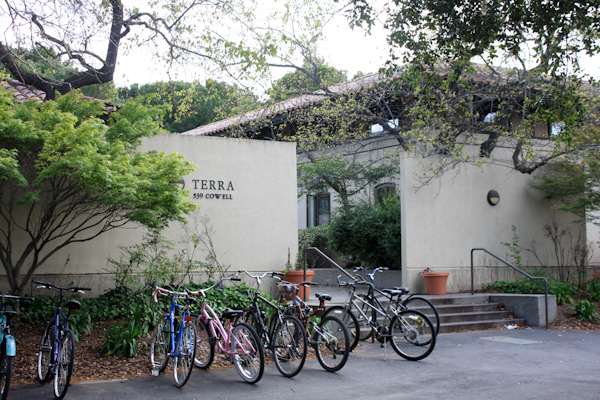All of Stanford’s seven co-ops will be guaranteed housing next year, the University revealed in an email to student staff on July 18.
The news comes as a relief to co-op student staff who have been petitioning to “save” the co-ops. According to the petition, co-op student staff were told earlier this week that co-ops “will need to be ‘combined’ should some houses not be able to fill 100% of their capacity through pre-assignments.”
Co-operative houses (co-ops) will allow potential residents to both pre-assign and apply through the neighborhood ranking process for the academic 2021-22 year, Stanford told student staff on Tuesday.
In previous years, R&DE allowed students to fill housing through pre-assignment and the Draw. The petition also stated that there was no guarantee co-op student staff would be able to keep their staff positions should co-ops be combined.
According to Residential Education Associate Dean Cole Shiflett, the change in the pre-assignment policy for co-ops was not related to the petition. Instead, she wrote that the change was based on the University’s desire to do everything they could to “support vibrant student communities.” This change in policy — which originally received harsh criticism from students — will not affect the cut in co-op student staff numbers.
As the University prepares to launch its new ResX neighborhood system, many houses on Stanford’s campus face changes. Under the new system, students will be placed in neighborhoods for all four years of their undergraduate experience. Students will also have the opportunity to apply to University Theme Houses, which co-ops will now be categorized under. With the exception of Sororities and Fraternities, students have to pre-assign to University Theme Housing.
“Throughout the ResX process, students were clear that their experiences in the co-ops were meaningful during their time at Stanford,” Shiflett said. “With a limited number of students on campus this past year and the associated challenges with recruiting members for these communities, we are working with co-ops on short-term solutions.”
Wunmi Akinlemibola ’22 M.S. ’22, the author of the petition and a 2021-22 Columbae staff member, emphasized the importance of not combining co-ops. She said that co-ops are not interchangeable since each one has its own theme and set of values — something she thinks the University did not originally consider.
“I felt like if any of them were combined, it would erase a lot of the collective history that these co-ops have had … all that history would have been lost and wouldn’t necessarily be regained,” Akinlemibola said.
Noor Fakih ’22, who will be a residential assistant for Terra House next year, also expressed frustration at the University’s original decision. She added that while Terra filled up most of its house through pre-assignment, they still had a few slots to fill and were at risk of being combined with another house. “Very few, if any [co-ops], had enough people to pre-assign applicants completely to fill their house. But it just meant that they needed a couple … it didn’t make sense to combine all these houses,” she said.
Colin Howe ’21 M.S. ’22 said that co-ops serve as unique spaces on Stanford’s campus, a sentiment that both Fakih and Akinlemibola echoed. “I especially think co-ops create a space for those who might not fit into the kinds of community catered to by self-ops and dorms,” Howe said. Howe also said that having cooking and cleaning responsibilities in co-ops made him feel more like an adult.
Akinlemibola also added that all the co-ops provide spaces in which students “can learn about the identities of the most marginalized students on campus” while also empowering themselves and others to be “changemakers.”
Fakih shared similar feelings when she discussed her time in Terra. Widely known as the unofficial LGBTQ+ house on campus, Fakih said that Terra’s culture allowed her to explore her feelings about gender and sexuality as well as think more deeply about what she wants in her career. Fakih said she feels that if any of the houses were combined, their cultures would not mesh well together.
“During my time in COVID, I just constantly think about my time and Terra,” Fakih said. “When I think about my time at Terra and how much I miss it, and how much I miss being in that kind of space, I cry. You know, I want to be back there. I want to be there again.”
